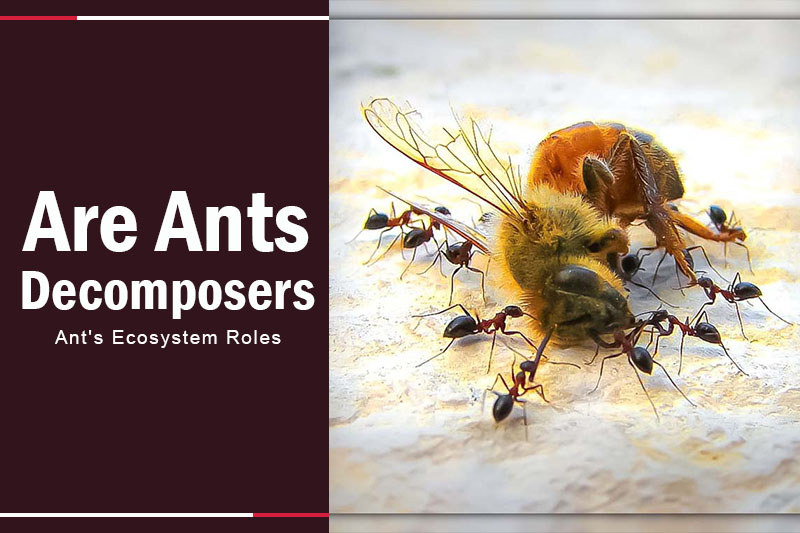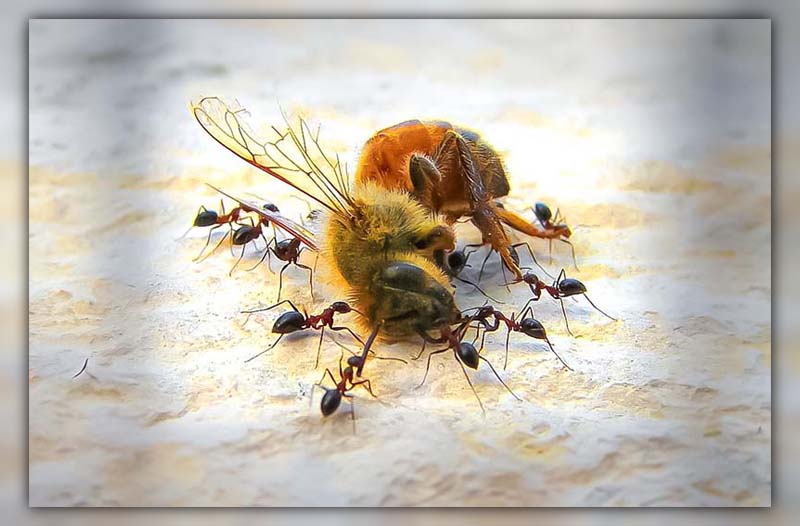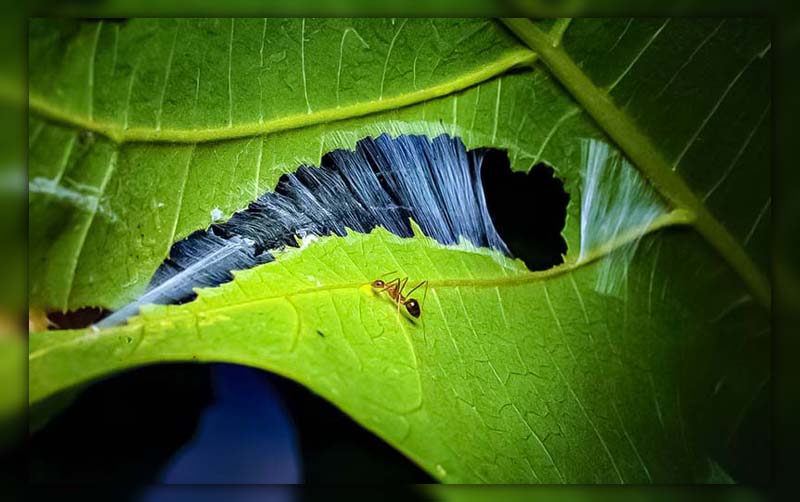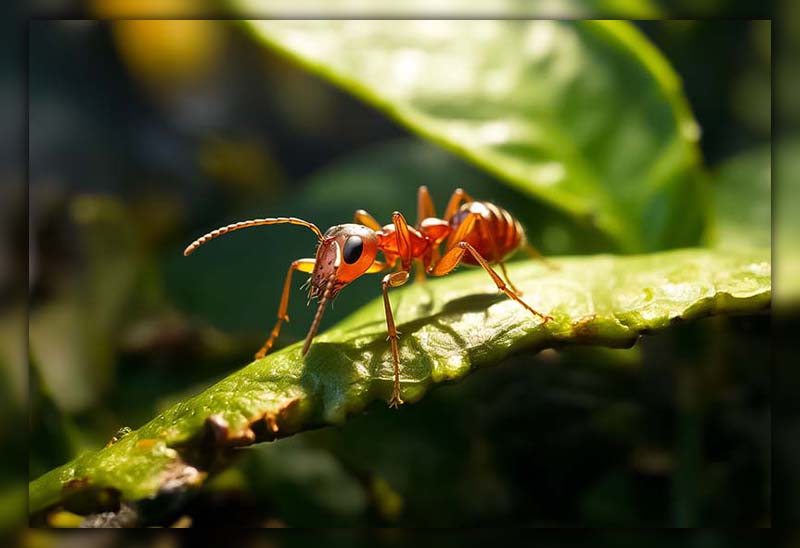The question “are ants decomposers?” may seem simple, but it opens a gateway to the intricate and vital roles these small creatures play in our ecosystem.
In this blog, we will unravel the mysteries of ants and their importance in maintaining the balance of our environment.

Are Ants Decomposers or Consumers?
Ants are both decomposers and consumers.
Decomposers are living things that break down dead plants and animals, getting nutrients from them. Like bacteria and fungi, ants are crucial decomposers in nature.
Many small creatures, including insects and worms, help break down waste and get rid of dead animals, which stops bad smells.
By breaking down dead animals, ants not only benefit the environment but also extend their lifespans as they can choose from various food sources based on availability.
Ants are also omnivores, which means they eat both plants and animals, whether they are alive or dead.
Just as consumers are living beings that hunt and consume food, ants too are consumers. They can attack plants for sap and leaves, and they can also sting and eat living insects.
However, ants differ from producers in the food chain, as they do not synthesize their own food like plants. Instead, they rely on plants and animals for nourishment.
Why are Ants Decomposers?
Ants are decomposers because they feed on dead plant and animal material and are often found in places like leaf litter or trash bins.
Break down organic materials
Ants use organic matter, such as dead plant matter, as a food source, getting essential nutrients from it.
They’re called saprophytes because they feed on rotting plant material, like old wood logs or rotting leaves and fruit. Rotting fruits, like apples and bananas, give off strong smells that attract ants.
These ants can extract a lot of nutrition from fruits and decaying plants. This rotting food is rich in phosphorus, nitrogen, and carbon, essential for a colony’s growth.
Additionally, these nutrients facilitate cell division and larval development. In fact, carpenter ants construct their nests within decaying wood, carving tunnels and utilizing the resulting sawdust to form their mounds.
Eat deceased bugs and animals
Ants are attracted to dead insects like roaches, termites, and spiders, as well as the bodies of larger animals like lions, cows, and birds.
They extract essential nutrients from these bodies, which are rich in nitrogen, calcium, magnesium, and potassium.
These nutrients help produce the building blocks for proteins. By consuming dead bodies, ants help decompose them and release nitrogen into the soil, which plants then use to produce fruits.
Reuse nutrients
Ants decompose complex bodies of organic matter and release nutrients into the environment.
These nutrients are then available for primary producers (like plants) to consume and use to build complex molecules.
Without ants, these nutrients would not be available for plants because they can’t extract them directly from the soil. This makes ants essential for recycling nutrients in the environment.
Keep the surroundings tidy
Ants help keep the environment clean by breaking down dead bodies of animals, birds, and insects.
They turn these carcasses into smaller particles that mix with the soil, where microbes then break them down further.
Carpenter ants degrade decaying wood into sawdust that mixes with soil.
Other household ants, like pharaoh ants and crazy ants, break down complex food particles into smaller, more manageable pieces.
This makes them efficient cleaners that help remove carcasses and other organic matter from the ground.

Is an Ant Considered a First-level Eater in The Food Chain?
Ants are primary consumers, much like cows and mice, because they directly eat plants and are considered herbivores.
Primary consumers turn plant material into simpler forms that secondary and tertiary consumers can easily digest.
But ants can also be secondary consumers because they hunt and eat insects and small animals, such as spiders, crabs, and termites.
Besides, ants can act as scavengers that eat dead organic material and meat, making them detritivores that mainly consume plant debris.
In fact, ants can remove up to 90 to 92% of dead invertebrates from the ground, thanks to their continuous chewing efforts over a few days.

Conclusion
In conclusion, we have meticulously delved into the question, “are ants decomposers?” and unveiled the indispensable roles these minuscule creatures play in our ecosystem. B
We invite you to share them in the comments section below, and encourage you to peruse additional enlightening articles from Pestweek!

Calina Mabel has over 15 years of experience in the field of journalism and communications. Currently, Calina Mabel is the Content Writer for categories such as Cockroach, Ants, Bed Bugs, Mosquito, Rodent, Termite, and Flies on Pestweek.com. She aims to build content for these categories with a focus on providing valuable and accessible information to readers, in order to create the world’s largest knowledge community about Pests.
All content written by Calina Mabel has been reviewed by Emily Carter.


